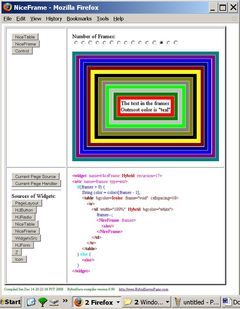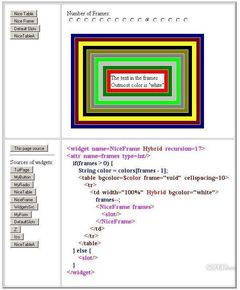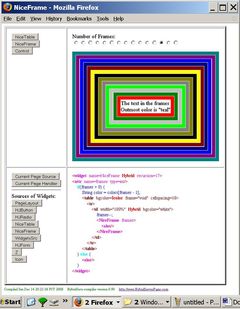HybridJava Compiler
version 1.06 |  windows
windows
 windows
windows

Name: HybridJava Compiler
Version: 1.06
Size: 597.4 KB
Category: Debugging & Compilers
License: Free
Released: 2012-07-03
Developer: Hybridserverpages Group
Downloads: 695
Version: 1.06
Size: 597.4 KB
Category: Debugging & Compilers
License: Free
Released: 2012-07-03
Developer: Hybridserverpages Group
Downloads: 695
| Rate this software: |
Description
Simple Server-side component-oriented MVC Java Web Framework alternative to JSF, Wicket, Tapestry, Click etc. The framework consists of a compiler and the runtime. The HybridJava language is strictly defined by a merge of Java and HTML formal grammar and extends Java semantics throughout markup. Compiler generates Java code invoked from a single Servlet. The runtime is less than 1000 lines of Java code and is provided as Open Source, as well as a sample Servlet. Of known solutions, Facelets language (that recently replaced JSP in JSF) functionally is the closest to HybridJava, but the latter is simpler and more powerful.The framework is designed with a minimalistic approach, so that it completely avoids using many “popular” concepts: JavaBeans, XML namespaces, XML and configuration in general, annotations, Expression Language etc. The complete documentation is less than 20 printed pages. Nevertheless, the framework has all the features necessary to compete with other component-oriented Java frameworks.
Components are defined as a generalization of HTML elements in the sense that to use a component it is sufficient just to insert its tag(s) into the View markup without configuration or Java coding. HybridJava also supports components that permit more than one area designated for insertion of content. As a result, components may have a layout of their own, which eliminates any need for a separate Tiles-like technique.
In the most general case a component consists of a .widget file coded in HybridJava language (the View) and a Java class. Lightweight components that have no state are presented only by the .widget file and are compiled directly into the View of the whole page. Normally buttons and other controls are lightweight. The framework automatically assigns unique IDs to instances of components, and takes care of dispatching user actions to corresponding instances.
Pure Java implementation










